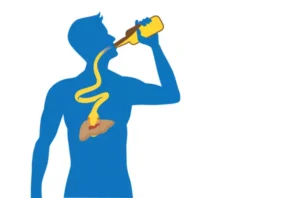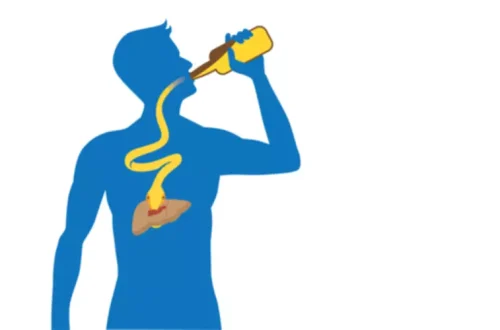
It is characterized by withdrawal symptoms with the patient being unable to cope when the drug is stopped. The Springboard Center’s sober living facility offers specialized programs for both dependence and addiction treatment options, providing the appropriate level of care for your specific situation. Family dynamics often shift to include enabling or codependent behaviors, creating complex interpersonal patterns that require professional intervention to address. We believe everyone deserves access to accurate, unbiased information about mental health and recovery. That’s why we have a comprehensive set of treatment providers and don’t charge for inclusion.

What is addiction? Mental health and substance use disorder
Addiction refers to a chronic what is alcoholism disease characterized by addictive behavior that is caused by fundamental changes in brain circuitry as a result of physical dependence over time. Addiction can cause distorted thoughts, uncontrollable behavior, and impulsive choices stemming from a person’s chemical drive to keep a substance in their system. Addiction and substance use disorder are the preferred terms for this process, as substance abuse is no longer used in the scientific community.
Addiction vs Dependence: Why These Terms Aren’t Interchangeable

When discussing substance abuse and related issues, the terms “addiction” and “dependence” are often used interchangeably. However, while they are closely related, it’s crucial to understand the distinct differences between these two concepts. In this post, we’ll delve into the nuances of addiction and dependence, exploring their definitions, key differences, and the implications for those affected. Genetics plays a significant role in determining an individual’s vulnerability to addiction and dependence.
- Although addiction and dependence are different, their symptoms can look somewhat similar to friends and family.
- Enrolling in an intensive outpatient or residential inpatient rehabilitation program or treatment center may be recommended for others.
- It’s when the use goes beyond medical necessity, when the person starts doctor-shopping or using the medication to cope with life stressors, that we enter drug addiction territory.
- In the case of dependence, behavioral treatments like therapy may not be necessary.
Addiction and dependence for alcohol

Understanding addiction and the difference between dependence and addiction may be a way to notice when you or a loved one is struggling with substance use. Education on symptoms and presentations can lead to being able to seek early intervention. Given the negative connotations often surrounding drug use, seeking help might be challenging for some people. Any substance use problem can be difficult for an individual and their loved ones or family members. In 1964, the World Health Organization (WHO) proposed using the word “dependence” instead of “addiction” as a medical designation.
What’s the Difference Between Addiction and Dependence? Actually, the Term That Matters Most Is ‘Treatment’
- Recognizing these symptoms is an important step towards acknowledging the presence of addiction or dependence and taking the necessary actions to seek help.
- In addition, both conditions frequently cause withdrawal symptoms when the user attempts to stop using the substance.
- It’s like slowly taking off a Band-Aid instead of ripping it off all at once.
- In this edition, the definitions revolving around addiction were changed once again.
- However, they may continue using due to physical or mental symptoms caused by stopping the substance.
- As the medical and scientific discussion on these terms has progressed in recent years, both are now considered as part of a larger grouping; that of substance use disorder.
To gain a deeper understanding of addiction, it is essential to explore its psychological aspects and the behavioral patterns that often accompany it. In some cases, medications may be used to help manage withdrawal symptoms or cravings, but these are typically used in conjunction with therapy and support groups. The body becomes accustomed to the substance, and stopping or reducing its use leads to withdrawal symptoms. As the medical and scientific discussion on these terms has progressed in recent years, both are now considered as part of a larger grouping; that of substance use disorder.
What causes substance dependence?
The DSM is the leading source for diagnosing and understanding addiction. However, the most recent edition of the DSM no longer creates this distinction. So why do some organizations scrap the word “addiction” from their vocabulary? The minds behind the Diagnostic and Statistical Manual of Mental Disorders (DSM) find the term carries too much negative connotation and is ambiguous.
- Understanding the difference between addiction and dependence helps create realistic expectations for recovery.
- For instance, a person taking medication for chronic conditions may experience withdrawal symptoms if they stop abruptly, but they don’t crave the medication or exhibit compulsive behaviors.
- Certain genetic variations can increase the likelihood of developing these conditions.
- When the substance is reduced or stopped, the person experiences physical and psychological symptoms such as nausea, anxiety, sweating, or seizures.
- Dependence can occur even with medications prescribed by a doctor, such as painkillers or antidepressants.

Once you have a tolerance, you might start taking higher doses to get the same effect. You might also become physically dependent on the drug, and feel withdrawal symptoms if you try to quit. However, the distinction between dependence and addiction can addiction vs dependence significantly impact treatment approaches. Managing physical dependence often involves a medically supervised detoxification process, gradually reducing the substance to minimize withdrawal symptoms. It’s like slowly taking off a Band-Aid instead of ripping it off all at once. Addiction is a chronic, treatable condition that involves complex interactions among brain circuits, genetics, the surrounding environment, and life experiences.
But if you have both, your physical and psychological symptoms might feed off each other. For example, you might start taking opioids to relieve pain after an injury. Then, as your body heals, lowering your dosage could make you feel anxious. In 2013, the American Psychological Association (APA) released the fifth edition of the DSM. In this edition, the definitions revolving around addiction were changed once again.

